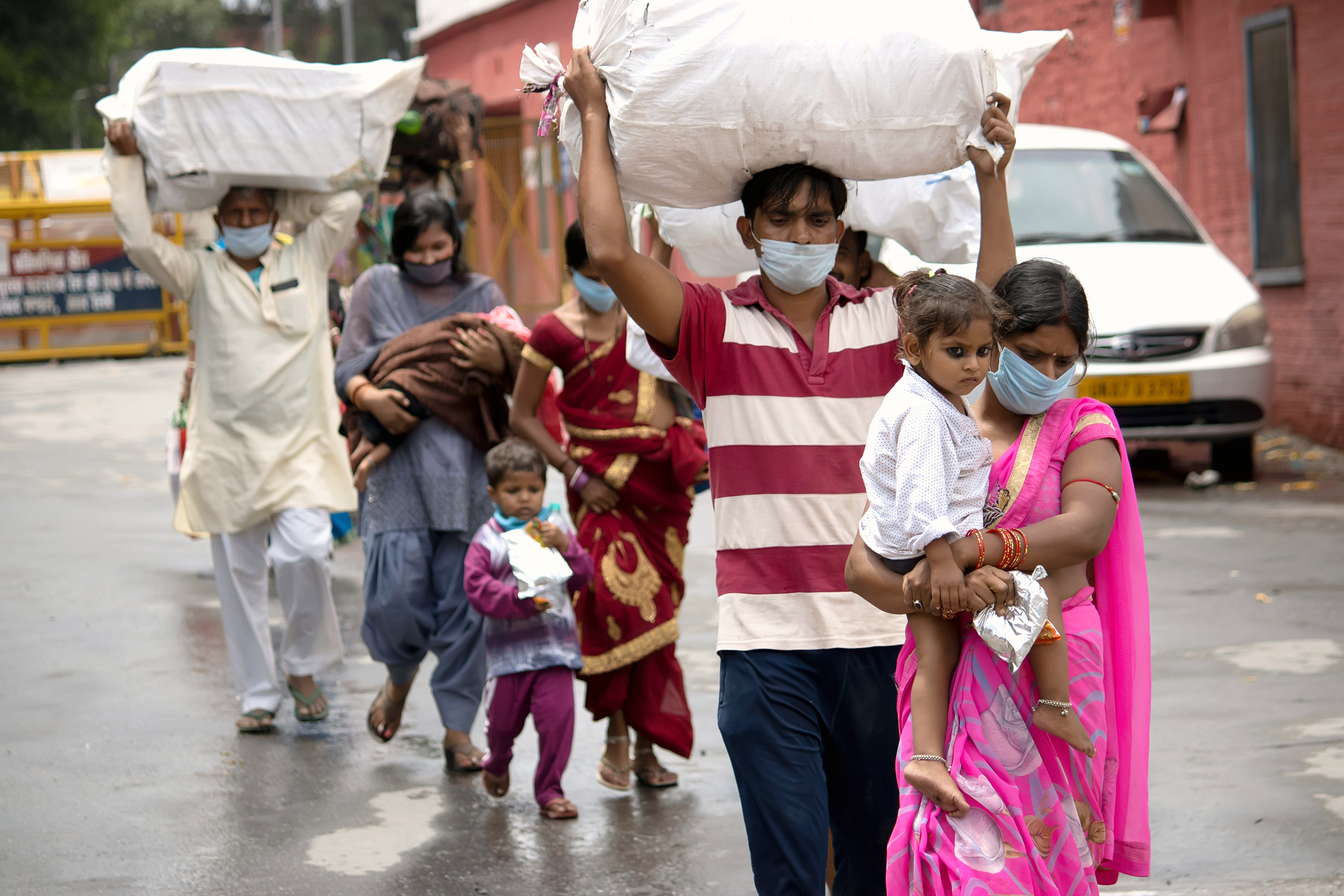On March 24 2020, the Indian government announced a nationwide lockdown to slow the spread of COVID-19. Implemented with just four hours’ notice, the lockdown forced millions of suddenly out-of-work migrants to return to their villages –often by foot over long distances. How can migrant-sending states support labor market opportunities for migrants without compromising COVID prevention efforts and workers’ safety? And what are the consequences of COVID-induced migrant returns for rural labor markets? The research has a unique opportunity to address these questions in Bihar, India’s poorest state, where hundreds of thousands of migrants have recently returned.
The research team has been working with our implementation partner, now designated one of two leads of Bihar’s COVID-19 response, for over a year as part of another study. This policymaker is working closely with government officials at the district, subdistrict, and village levels to track and respond to the pandemic and its associated impacts. For the past several weeks, district administrators have been tasked with identifying all returning migrants (e.g., through interception at transport hubs) and collecting basic data that will allow for migrant contact and tracking. Thus far, nearly 200,000 migrants have been identified. The team aims to enroll 2,000 randomly-selected migrants from this database in a six-month tracking survey. If funding allows, they hope to continue tracking for at least one year. While the majority of Bihari migrants are male, they will oversample women (targeting 1,000 female enrollees) to ensure they can speak to the experiences of both genders. The surveys will be short (10-15-minutes) and conducted every month. Questions will cover labor supply and unemployment, access to social protection, food security, and experiences of discrimination. They have designed the survey together with our government counterpart to ensure the data can inform policies and programs to address migrants’ needs. Our team at EPoD India at LEAD at KREA University will work closely with the principal investigators to administer these phone surveys. The team anticipates providing small incentives (likely mobile recharges) to increase survey response rates.
Our multi-year collaboration with the state’s Rural Development Department gives us clear channels to provide immediate input into the state’s policy responses to COVID-19. This pre-existing relationship also makes it likely that they can continue partnering with the state to develop and implement at-scale randomized evaluations of approaches to mitigate the economic effects of unemployment during the outbreak and improve migrants’ labor market opportunities in the wake of COVID-19, e.g. by leveraging MGNREGS, the central government’s workfare program. Our work is directly relevant to G²LM|LIC off-cycle priorities of understanding and effectively responding to the labor market disruptions of COVID-19 for vulnerable groups like informal workers, migrants, and factory workers. By oversampling women, the research team will also have a unique opportunity to study how the crisis impacts labor market attachment among previously-working women. Given Bihar’s extreme poverty and limited state capacity, insights from these surveys will provide important insights to low-income countries in similar conditions. Finally, they are committed to providing evidence-based policy recommendations to inform quick policy responses to COVID-19 challenges. The results of the surveys will be shared as soon as possible (within one week of closing a survey round) with Bihar’s COVID-19 response team and other policymakers working on COVID-19 response in India. The project also commits to sharing insights, as approved by the government, with a broader audience of policymakers and academics through posting survey instruments and results on Yale’s Economic Growth Center’s website.
